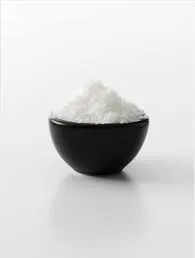- Afrikaans
- Albanian
- Amharic
- Arabic
- Armenian
- Azerbaijani
- Basque
- Belarusian
- Bengali
- Bosnian
- Bulgarian
- Catalan
- Cebuano
- Corsican
- Croatian
- Czech
- Danish
- Dutch
- English
- Esperanto
- Estonian
- Finnish
- French
- Frisian
- Galician
- Georgian
- German
- Greek
- Gujarati
- Haitian Creole
- hausa
- hawaiian
- Hebrew
- Hindi
- Miao
- Hungarian
- Icelandic
- igbo
- Indonesian
- irish
- Italian
- Japanese
- Javanese
- Kannada
- kazakh
- Khmer
- Rwandese
- Korean
- Kurdish
- Kyrgyz
- Lao
- Latin
- Latvian
- Lithuanian
- Luxembourgish
- Macedonian
- Malgashi
- Malay
- Malayalam
- Maltese
- Maori
- Marathi
- Mongolian
- Myanmar
- Nepali
- Norwegian
- Norwegian
- Occitan
- Pashto
- Persian
- Polish
- Portuguese
- Punjabi
- Romanian
- Russian
- Samoan
- Scottish Gaelic
- Serbian
- Sesotho
- Shona
- Sindhi
- Sinhala
- Slovak
- Slovenian
- Somali
- Spanish
- Sundanese
- Swahili
- Swedish
- Tagalog
- Tajik
- Tamil
- Tatar
- Telugu
- Thai
- Turkish
- Turkmen
- Ukrainian
- Urdu
- Uighur
- Uzbek
- Vietnamese
- Welsh
- Bantu
- Yiddish
- Yoruba
- Zulu
12 月 . 03, 2024 14:53 Back to list
importance of feed additives in animal nutrition
The Importance of Feed Additives in Animal Nutrition
Feed additives play a crucial role in modern animal nutrition, significantly enhancing the health, growth, and productivity of livestock and poultry. These substances, which are included in animal feed to improve its nutritional value and performance, can take various forms, including vitamins, minerals, probiotics, and enzymes. Understanding the importance of feed additives is essential for optimizing animal health and agricultural efficiency.
Enhancing Nutritional Value
At the core of animal nutrition lies the need for a balanced diet that meets the dietary requirements of different species. However, natural feeds often lack certain nutrients. Feed additives serve as supplements to correct these deficiencies. Vitamins and minerals, for instance, are critical for various physiological functions, including immune response, bone health, and metabolic processes. For instance, the addition of vitamin E and selenium can enhance the immunity of livestock, leading to healthier animals and improved productivity.
Promoting Growth and Productivity
One of the primary reasons for incorporating feed additives is their ability to promote growth and improve feed efficiency. Growth promoters such as antibiotics and hormone-like substances can significantly enhance weight gain and feed conversion rates in animals. However, due to rising concerns over antibiotic resistance and public health, there has been a shift towards using alternatives like probiotics and prebiotics. These natural additives help balance gut microbiota, leading to better nutrient absorption, improved digestion, and overall enhanced growth performance.
Improving Feed Efficiency
Feed efficiency is a critical factor in livestock production, influencing the overall economics of animal farming. Animals that convert feed into body weight more effectively require less feed, reducing costs for farmers. Enzymes, for instance, are commonly used feed additives that help breakdown complex feed materials, making nutrients more accessible. This not only optimizes nutrient utilization but also minimizes waste, contributing to sustainable farming practices.
importance of feed additives in animal nutrition

Disease Prevention and Health Management
The health of livestock is paramount to any farming operation, and feed additives play a vital role in disease prevention and management. Probiotics, which are live microorganisms, can enhance gut health and boost the immune system. By promoting a healthy gut microbiome, these additives reduce the incidence of diseases and infections, leading to a significant decrease in veterinary costs and improved animal welfare. Moreover, the use of specific feed additives can aid in preventing metabolic disorders, ensuring that animals remain healthy throughout their production cycles.
Environmental Sustainability
In addition to their benefits for animal health and productivity, feed additives can also contribute to environmental sustainability. By improving feed efficiency and reducing waste, additives can decrease the environmental footprint of livestock production. This is particularly important in an era where agricultural practices face scrutiny regarding their impact on climate change and resource use. Moreover, certain additives can help reduce methane emissions from ruminants, thus supporting efforts to mitigate the effects of livestock farming on global warming.
Regulatory Considerations and Consumer Awareness
The use of feed additives is subject to various regulations worldwide, aimed at ensuring the safety and efficacy of these substances in animal production. Farmers and producers must stay informed about these regulations, as well as consumer perceptions regarding feed additives. With increasing awareness and demand for natural and organic products, the industry is witnessing a trend toward more transparent and sustainable practices. This includes a greater emphasis on the use of feed additives derived from natural sources, which aligns with consumer preferences for healthier and more ethically produced animal products.
Conclusion
In conclusion, feed additives are indispensable in modern animal nutrition, contributing to improved health, growth, and sustainability in livestock production. With their ability to enhance the nutritional value of feeds, promote growth, prevent diseases, and support environmental sustainability, the significance of these additives cannot be overstated. As the agricultural sector continues to evolve, it is crucial for farmers and producers to leverage the benefits of feed additives while being mindful of regulatory and consumer trends. By doing so, they can ensure a prosperous future for animal agriculture that meets the demands of both the market and the environment.
-
The Power of Radix Isatidis Extract for Your Health and Wellness
NewsOct.29,2024
-
Neomycin Sulfate Soluble Powder: A Versatile Solution for Pet Health
NewsOct.29,2024
-
Lincomycin Hydrochloride Soluble Powder – The Essential Solution
NewsOct.29,2024
-
Garamycin Gentamicin Sulfate for Effective Infection Control
NewsOct.29,2024
-
Doxycycline Hyclate Soluble Powder: Your Antibiotic Needs
NewsOct.29,2024
-
Tilmicosin Premix: The Ultimate Solution for Poultry Health
NewsOct.29,2024













